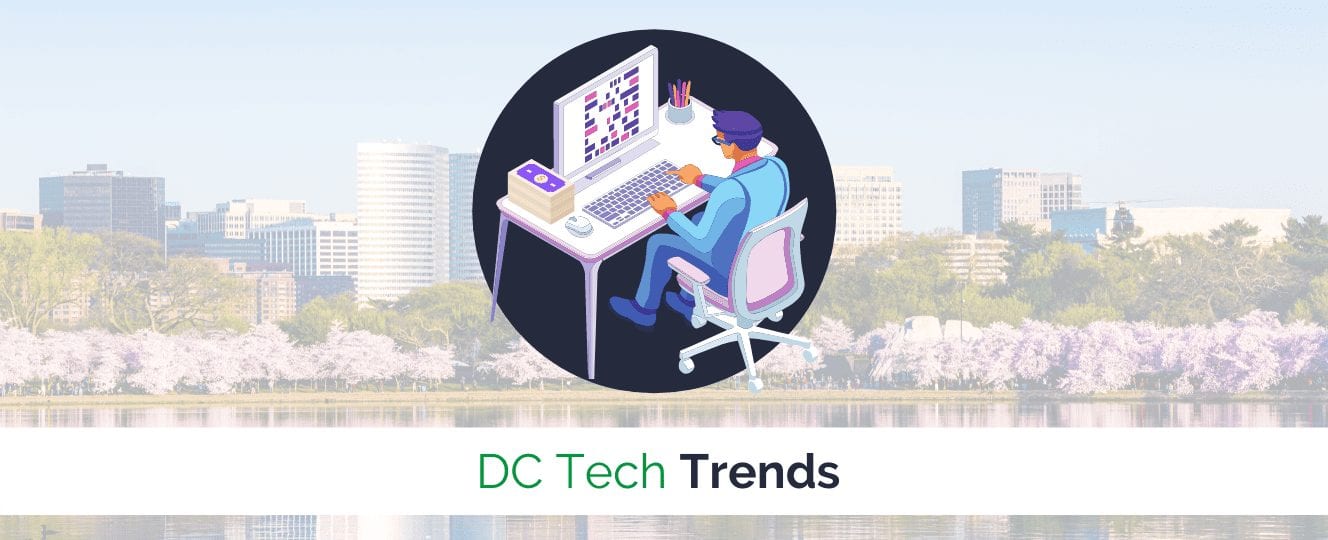Taylor Poindexter saw a gap in the community as soon as she landed her first job in the DC area as an Automation Engineer. There wasn’t a community of Black software developers that she could connect with or grow with professionally.
As a Black woman in software development, Taylor was especially aware of the lack of support for diverse technologists.
Along with four other founders, she set out to form Black Code Collective (BCC): a welcoming community where Black software developers could grow their skills, share knowledge, and help each other progress through their careers.
Over the past four years, the community has seen rapid growth and has revolutionized the professional development of many engineers in the DC region.
We interviewed Taylor to hear the journey of how BCC was created and where it’s heading. Since she incorporates mentorship into everything she does, we also got some pro tips on how developers can lean into mentors to propel their career forward.
The conversation below has been edited for length and content.
After starting your career in DC, you saw a gap in the community. Out of that, you formed Black Code Collective (BCC). Can you tell us about your journey of forming the community?
When I first got out of college, one of my friends told me to get into Meetups. I enjoyed a lot of them, but still felt like intersectionality was missing, being Black and a woman. During that time, I had a couple of frustrating days at work and was very much aware that I was one of only a couple Black engineers at the company. While talking with another female engineer, I told her how frustrated I was and how I wished I had a community of Black people to talk to about our careers. I thought it would make things a lot more bearable in situations when the people I was working with didn’t really understand. She told me she had met a guy at a weekend meetup who said the same thing.
We started considering the amount of work it would take to do a meetup consistently. When looking at the market, we found other groups who catered to minorities in tech. But they weren’t consistently hosting meetups. We decided that if we were going to do this, we wanted to do it right. So, we got a group of 5 founders to commit.
When we first started, we thought to ourselves, “We don’t think there are that many Black engineers in DC, so we’ll focus on quality over quantity.” We were shocked to discover the number of engineers we met who hadn’t been in our day-to-day path. The turnout was much higher than we expected.
For me, it’s been interesting to see people who look like me, to connect with people who are in positions I want to be in one day, and to help people who are younger than me. The general community has been really good for my heart over these past couple of years.
How has BCC changed over time and what does it look like today?
Originally, we were mainly focused on just having events. But we want to focus on giving back to the youth, even outside of volunteering our time. We hope that through increased sponsorship, we’ll be able to give scholarships to high school students who might not be able to afford expensive tech camps. Our main focus now is to pour into the next generation of engineers and continuing to make sure our current foundation is genuine quality.
We want our members to feel genuinely taken care of and that they’re part of a tech family.
As far as growth goes, we want to keep the group hyperlocal in DC; mainly for quality reasons. We had the idea of exactly what we wanted BCC to be. We didn’t want to have a brand where people are like, “Oh that’s kind of a BS brand.” Right now the only way we’d consider expanding to another state or city is if one of the founders moved there and was willing to take on the work to build out that community, and make sure it is what we truly believe in. I think expanding into new places is great, but it’s not great if the quality decreases.
As far as the online community, we don’t mind as much if people live in other places. We have an active Slack community and are engaging people on Twitter. While the events are hyper-focused in DC, we’ve actually been engaging with people online in other states, and even in other countries, which I was surprised about.
Mentorship is clearly something you value. Can you share your thoughts on mentorship in the tech space and the importance of learning from leaders?
I have a couple main thoughts.
One, mentorship can take a lot of work for the mentor. I typically recommend that people offer their services to someone who they want to be their mentor so it doesn’t seem like you’re just asking for something. Especially if you don’t already have a rapport with that person.
Even if that’s just letting them know you’re willing to help however you can.
I also try to make it as natural as possible. I have several mentors. For each of them, at some point in our relationship, I thought they’d be a great mentor. But I never really pushed it until I thought they’d be accepting to the idea. I waited until we had a baseline relationship and that made it so much easier.
Some people get hung up on wanting to have one mentor, which I get to a degree. But having several is so meaningful. You get different perspectives since these people have had different walks through life and their career. Also, it doesn’t seem to be as much on one person. You kind of get to spread the load in the process.
Lastly, it’s good to value your mentor’s feedback, but you shouldn’t feel like you have to do everything they recommend. Especially if it doesn’t align with what you want to do. Something I’ve tried to remind myself is that while I respect these people and do want their feedback it’s my career at the end of the day.
How is that incorporated into the way you all do mentorship at BCC?
I’d say we do a village style mentorship. In the past we’ve had in person meetings. Like helping high school kids who may need help on their homework or figuring out what college classes they should pick. They come and ask questions to the whole group and everybody gives their feedback. So they gain multiple perspectives.
It’s kind of the same thing on our Slack, but it’s more so adults in the middle of their career. We have a mentor/mentee Slack. If someone is really struggling with something, they throw the question out and everyone gives them advice as they see fit.
We’ve also had one-on-one mentorships develop from the Slack channel when people felt like they made a good connection.
How have things worked for BCC, switching to remote events and communication. How will the community stay engaged moving forward?
I feel like we’ve already gone through a journey. Like everybody else, COVID was a shock to the system. We tried to move some of the events onto Zoom, but once we added police brutality into the COVID situation we decided to take a break and take care of our members in other ways, like having lighthearted conversation through Slack instead of focusing on tech.
Now that we think we’re ready for it, we’re going to try and have Zoom technical talks. Another thing we like to do is “Whine Down Wednesdays” where people can come and “whine” about what’s bothering them in the technical industry. Now that we know COVID is going to last for a while, we’re going to invest in the premium Zoom so we can have breakout rooms and people can hopefully have more meaningful conversations than they’d be able to in a room of 50 or 100 people.
We hope to keep quality conversations moving.




